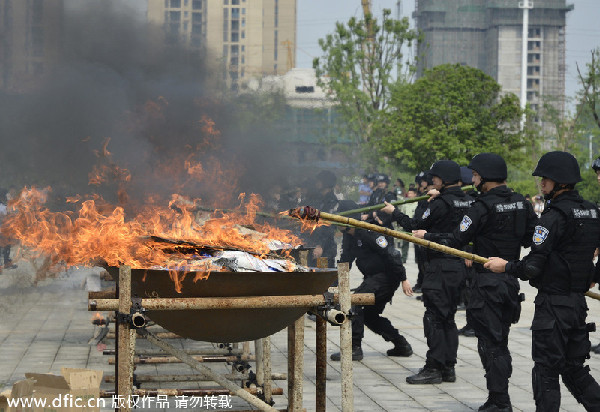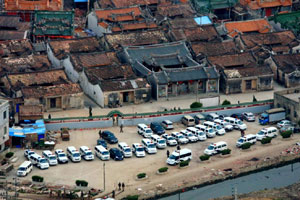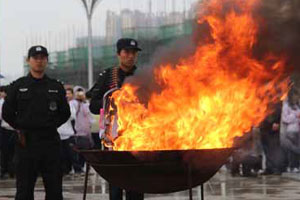 |
|
Police burn seized drugs in Loudi, Central China's Hunan province, June 3, 2014. [Photo/IC] |
According to the ministry, national anti-drug police arrested more than 2,000 people From March 15 to early April on suspicion of using the Internet to engage in drug-related crimes, a 10 percent increase from the previous year.
Authorities raided 25 drug-making facilities and seized 268 kilograms of drugs, 22 guns and 719 rounds of ammunition.
"To avoid police detection, traffickers have recently been using Internet chat platforms to operate drug-trafficking rings. They are also using chat platforms to learn how to make drugs, order raw materials and contact buyers," said Liu Yuejin, director of the ministry's narcotics control bureau.
Sun Li, deputy director of the Beijing Higher Court, said drug addicts are using mobile messaging services such as Wechat or QQ to contact each other, to discuss prices and to make appointments to meet.
"All the transactions are conducted on the Internet, and traffickers usually transport the drugs through express mail," he said.
Last month, Panshi police in Jilin province busted two drug trafficking rings that used the Internet to engage in the production and distribution of drugs. Police arrested 48 people and confiscated 10 kilograms of methamphetamine, two guns, 10 rounds of ammunition and three cars.
The amount of money involved was valued at 10 million yuan ($1.6 million), police said.
Panshi police said they discovered late last year that three of those arrested were working together and organizing QQ chat groups made of drug users to release information and engage in drug trafficking.
Jilin police said the drug users in the chat groups were spread across 15 provinces, including Jilin, Guangdong, Fujian and Shaanxi.
Liu acknowledged that it's difficult to collect and obtain evidence on Internet drug trafficking.
"Sometimes, when we discovered the crimes, the chat information or transaction records for drug users are lost or have deliberately been destroyed."
Liu also said there is a shortage of anti-drug police officers.
"There are only 20,000 anti-drug officers nationwide, and they can't handle all of the heavy and complex drug-control work. And the equipment and infrastructure for narcotics control are outdated," he said.
He said police will tighten supervision on the Internet, use high-tech measures to enhance intelligence-gathering and reward the public for reporting more information.
"Once we get the clues, we will target the major operators to bust trafficking rings," he said.
Hong Daode, a law professor at Beijing University of Political Science and Law, said: "The key to eliminating drug crime on the Internet is to raise people's awareness of the law. We must improve education to guide them to resist drugs, especially juveniles."
China will update legislation to meet the needs of current anti-drug efforts.
"Our anti-drug laws and regulations lag behind, and in practice, their punishments are too lenient," Hong said.
Contact the writer at [email protected]
|
 |
 |
| Guangdong police raid notorious drug village? | ?Intl cooperation to aid drug fight |
